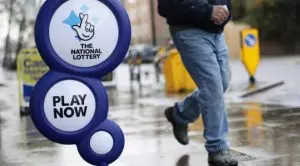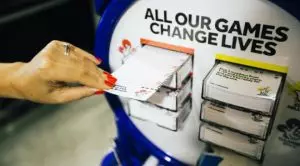 The UK gambling regulatory body has warned that the National Lottery could be halted for the first time in 3 decades due to a legal battle. Unfortunately, such a move would deprive both players and good causes of millions of pounds.
The UK gambling regulatory body has warned that the National Lottery could be halted for the first time in 3 decades due to a legal battle. Unfortunately, such a move would deprive both players and good causes of millions of pounds.
As The Telegraph reported, the UK Gambling Commission (UKGC) noted in a court submission that a legal challenge, which has been started by Camelot after the regulator announced its decision to grant the Czech Republic’s lottery operator Allwyn the fourth operating permit for the National Lottery on February 1st, 2024, could delay the handover of the licence to the preferred candidate.
Camelot has been the company that operated the National Lottery since its inception in 1994. After the Gambling Commission unveiled its decision in the competition process for the National Lottery, the company has claimed that the loss of the operating permit could effectively put it out of business, which would also prevent it from making bids for other international contracts.
The executive director of the UKGC, John Tanner, gave evidence to the High Court, saying that Allwyn could not get enough implementation time as a result of the ongoing legal battle, which on the other hand could halt the National Lottery operations for a certain period of time.
As Casino Guardian previously reported, the UK gambling watchdog is aimed at reversing a court decision to suspend the NL licence handover process while waiting for the outcome of the legal challenge that was started by Camelot after the regulator announced Allwyn as its preferred candidate for the National Lottery’s licence earlier this year.
Transfer Process Delay Could Jeopardise Players’ Winnings and Money for Good Causes, UKGC Warns
 The gambling regulator of the UK warned that no less than 19 months were necessary for Allwyn to prepare for taking over as National Lottery operator and finalise the complex process, which has been the first transfer of the NL holding from one company to another so far. This is why the transfer needs to start in June and July 2022 at the latest.
The gambling regulator of the UK warned that no less than 19 months were necessary for Allwyn to prepare for taking over as National Lottery operator and finalise the complex process, which has been the first transfer of the NL holding from one company to another so far. This is why the transfer needs to start in June and July 2022 at the latest.
At the time he made his submission to the High Court, the UKGC executive director explained that as long as the gambling watchdog was prevented from entering into a so-called enabling agreement with its preferred candidate to start the transfer process, the risk of disrupting the lottery’s operation still remained. According to Mr Tanner, both Allwyn and the Commission would suffer significant prejudice as they would be unable to start some of the important steps associated with the commencement of the licence.
He shared that, as a result, the National Lottery is likely to not operate to its full potential when its fourth licence term begins. Furthermore, Mr Tanner explained there was a real risk that the National Lottery did not operate at all for a certain period. The UKGC executive director’s submission also said that any delays in the transfer process could put both money for good causes and players’ prizes at risk, as there would not be any contributions during any period where the National Lottery remained inoperational.
The UKGC noted that players usually win between 500,000 and 1.5 million prizes in a typical draw and are given the right to claim them in a period of up to 6 months after the draw. According to the gambling regulatory body, the former and the newly-selected operator of the National Lottery would need to make an agreement on a process to honour millions of outstanding prizes.
Camelot Claims That the UKGC’s Choice Would Put the National Lottery at Justified Risk
 The UK Gambling Commission warned that the money for good causes would be reduced by about £1 billion, even if there was a delay in signing the so-called enabling agreement that would officially hand Allwyn the right to operate the National Lottery but the work of the lottery is not temporarily ceased.
The UK Gambling Commission warned that the money for good causes would be reduced by about £1 billion, even if there was a delay in signing the so-called enabling agreement that would officially hand Allwyn the right to operate the National Lottery but the work of the lottery is not temporarily ceased.
At the time it applied for the operating licence of the National Lottery, Allwyn proposed an implementation timespan of 22 months, including a 3-month contingency period. In his submission to the High Court, Mr Tanner warned that June 30th, 2022 is as far as the delay could go in order for the minimum period of 19 months needed. He explained that if the UKGC was unable to enter into the aforementioned enabling agreement with Allwyn, the irreversible harm to good causes and players’ money would be almost inevitable, and there would be a high risk of that harm becoming significant.
Allwyn had promised to provide far better returns to good causes although it has come up with plans to slash the price for the main draw of the National Lottery by 50%. However, Camelot has argued that the UK gambling regulatory body discounted the use of the risk factor in the final adjudication of the bids, when it preferred the potentially riskier business plan of Allwyn. The Commission, however, sticks to its claims that the competition process has been fair and transparent.
- Author


